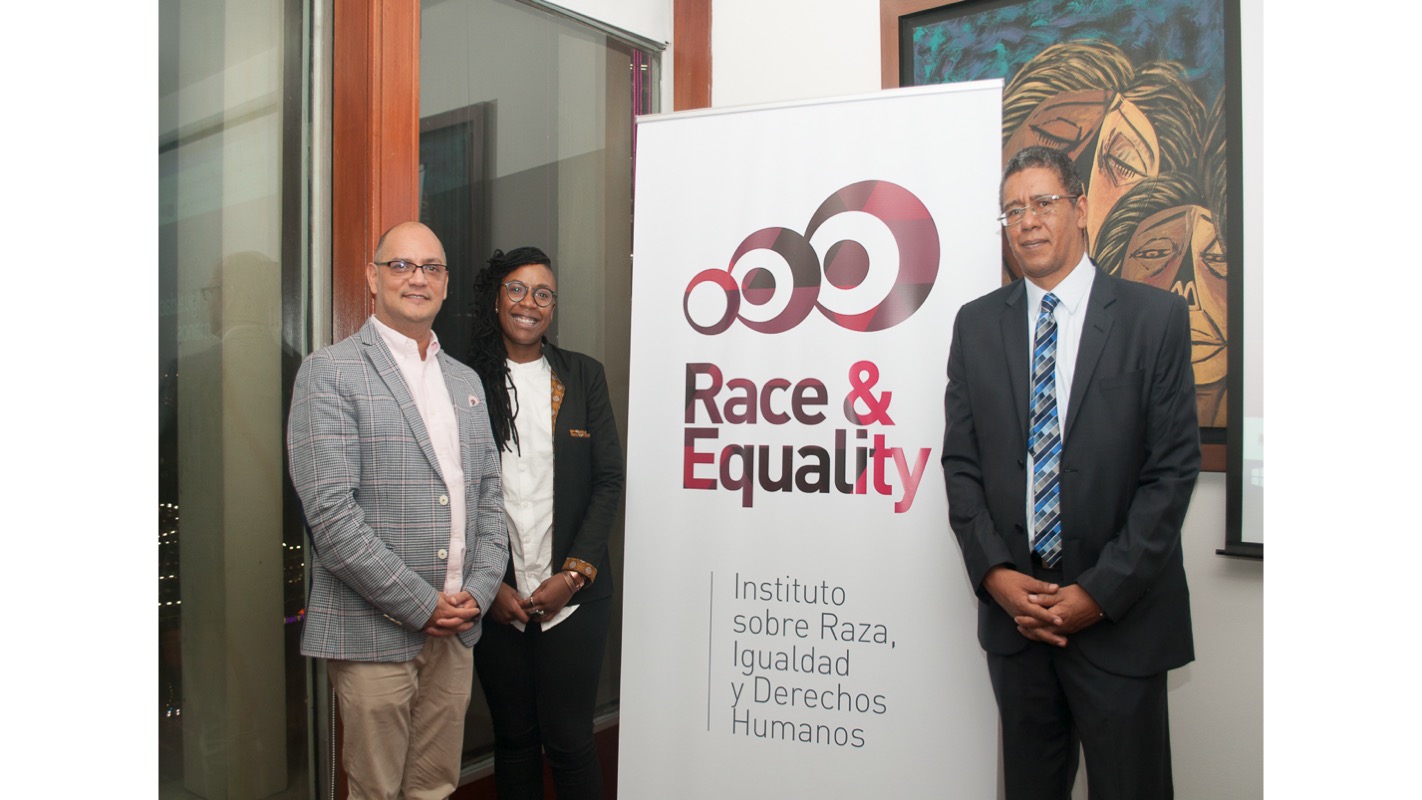Race and Equality hosts meetings in Colombia with the United Nations (UN) Special Rapporteur on contemporary forms of racism, racial discrimination, xenophobia, and related intolerance.
Bogota, March 1, 2018. The International Institute on Race, Equality, and Human Rights (Race and Equality) hosted public and private meetings in Bogota, Colombia with Miss E. Tendayi Achiume – […]

Bogota, March 1, 2018. The International Institute on Race, Equality, and Human Rights (Race and Equality) hosted public and private meetings in Bogota, Colombia with Miss E. Tendayi Achiume – the UN Special Rapporteur on contemporary forms of racism, racial discrimination, xenophobia, and related intolerance. During the public meeting, the Special Rapporteur’s mandate was discussed and explained. The private meeting was arranged exclusively with Afro-Colombian organizations. Miss Achiume was in Colombia to attend the 167th Period of Sessions of the Inter-American Commission on Human Rights’ (IACHR).
Close to 80 participants attended the public informative meeting; including members of ethnic organizations, government institutions, local and international non-governmental organizations, aid and cooperation agencies, and interested members of the public. Ms. Achiume explained the functions of her mandate as well as the mechanisms used by the Rapporteurship to encourage states to comply with their international human rights obligations. This includes the obligation to protect people and communities that continue to suffer from discrimination and/or exclusion on the basis of race, national origin, sexual orientation, or gender identity. After her presentation, Ms. Achiume opened the floor for a dialogue with those present to discuss concerns about the relevance of the Rapporteurship and the contributions it can make towards eliminating discrimination and intolerance in Colombia.
Additionally, a private meeting was held with members of the National Association for Displaced Afro-Colombians (AFRODES), the National Conference of Afro-Colombian Organizations (CNOA), the Process of Black Communities (PCN), the Association of Community Councils of Northern Cauca (ACONC), the Afro-Colombian Labor Council (CLAF), the Network of Afro-Colombian Women KAMBIRI, the National Movement CIMARRON, the Technical Secretariat of the Special Jurisdiction for Peace (JEP), the Consultancy for Displacement and Human Rights (CODHES), and ILEX – Afro-descendant Legal Action of Colombia.
Thanks to the contributions of each of the organizations present, the Special Rapporteur was able to gather first-hand accounts of the human rights situation of Afro-Colombian communities in the context of the implementation of the peace accords. Particular concerns raised included threats and assassinations committed against social leaders, violence and its confinement in Afro-Colombian territories, the precarious living conditions in which displaced Afro-Colombian populations live in, the continued processes of exclusion associated with legal and illegal economies, the situation of aggravated vulnerability of Afro-Colombian women, and the delay in the implementation of the Ethnic Chapter in the peace accords. Participating organizations coincided in highlighting the importance of the Special Rapporteur in requesting the Colombian government to carry out an official on-site visit to assess these situations in greater depth.
In concluding remarks, Ms. Achiume expressed her willingness to use all the mechanisms available to the Rapporteurship to convince the Colombian state to issue an adequate response to all the issues presented.
Race and Equality also highlights the importance that the past two official visits by the Special Rapporteur have had in Colombia. The visits occurred in 1996 and 2003 and the resulting reports contributed significantly in raising awareness of the grave human rights situation facing Afro-Colombian communities as a consequence of the armed conflict. Most of these recommendations are still relevant and should be implemented by the Colombian government in the current, post-accord context, where Afro-Colombian communities continue to face grave human rights violations. Race and Equality shares the opinion of the participating organizations that official on-site visit by the Rapporteurship should be conducted urgently and also recommends that the Rapporteurship maintain an open channel of communication the organizations that attended. Race and Equality also believes it is important that the Rapporteurship recommend that the Colombian state ratify the Inter-American Convention against Racism, Racial Discrimination, and other forms of Intolerance.
Race and Equality will continue to promote channels of information and technical assistance to strengthen working relations between the UN Special Rapporteur and organizations from ethnic communities and the LGBTI population in the Americas.
More information on the Special Rapporteurship can be found here: http://www.ohchr.org/EN/Issues/Racism/SRRacism/Pages/IndexSRRacism.aspx

